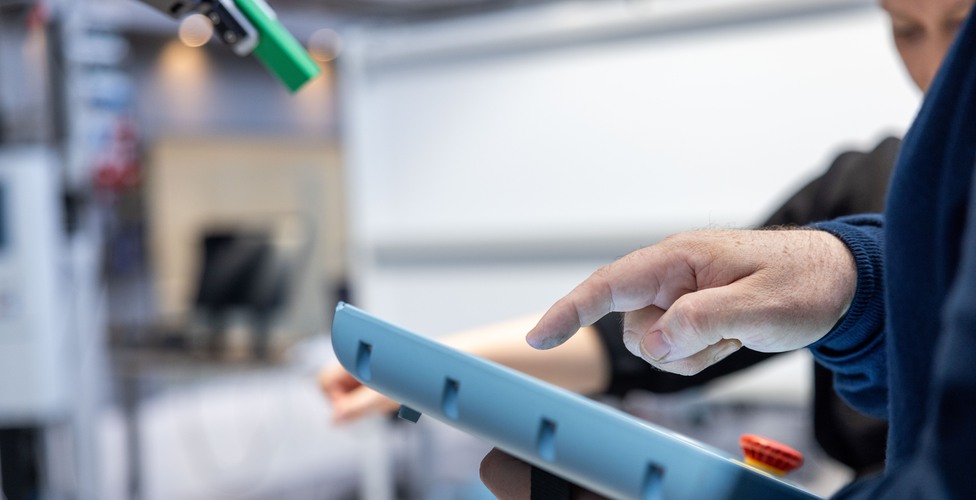Researchers at the University of Skövde have received five million SEK from AFA Insurance to study how robotisation and collaboration between humans and robots affect workers’ competence and sense of control. The project is conducted in partnership with Volvo and Scania.

Increasing robotisation in Swedish industry is considered essential to maintain companies' international competitiveness. How should collaboration with robots be designed to promote a good working environment? Should robots’ function as tools for operators, machines, or perhaps as colleagues? Researchers at the University of Skövde will explore these questions in a new research project.
“As robots and AI become increasingly prevalent in industry, it’s crucial to better understand how these changes affect workers’ skills development and sense of control in their work. Will we see robots as support, or as something that takes over tasks?” says Erik Billing, Associate Professor of Informatics at the University of Skövde.
Human-robot collaboration involves robots assisting humans with various tasks. Erik Billing and his colleagues are researching this, always with a focus on the human element.
“For me, robots are also a way to better understand ourselves,” says Erik Billing.
Collaboration with Volvo and Scania Provides Practical Grounding
The project is conducted in collaboration with Volvo GTO in Gothenburg and Scania in Södertälje. The research involves practical applications in two specific use cases where operators work alongside robots to perform tasks such as visual inspection and kitting.
“Collaboration is crucial for ensuring the research is aligned with real-world industry practices, but it’s also important for us to conduct research with a broader purpose,” says Billing.
The findings may reveal how operators perceive robots—whether as tools, colleagues, or autonomous machines—and how these perceptions impact their work environment. The researchers will also develop guidelines for designing human-robot collaboration. These guidelines are intended to be useful not only in the manufacturing industry but also in other sectors where humans and robots collaborate.
A Step Forward for Research in Human-Robot Interaction
“The project specifically strengthens our research in human-robot interaction, HRI, an area where both our School of Informatics and our colleagues at the School of Engineering Science are already quite strong. It aligns well with the kind of research we want to conduct,” says Billing.
About the Project
The project, Competence Development or Competence Decline in Robotized Environments (KOMPARO), has been awarded five million SEK by AFA Insurance. Participating researchers from the University of Skövde include Erik Billing, Beatrice Alenljung, Associate Professor of Informatics and Maurice Lamb, Lecturer in Informatics. The project will run for three years.


